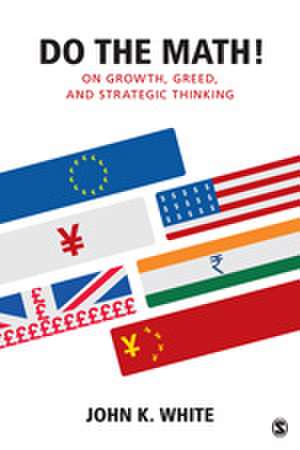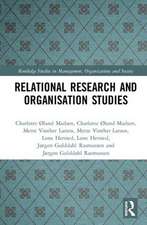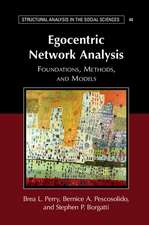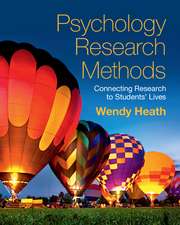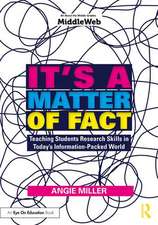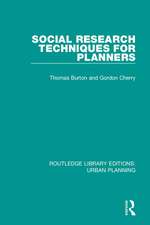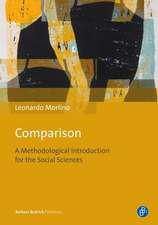Do the Math!: On Growth, Greed, and Strategic Thinking
Autor John K. Whiteen Limba Engleză Paperback – 7 mai 2012
Preț: 306.10 lei
Nou
Puncte Express: 459
Preț estimativ în valută:
58.58€ • 60.93$ • 48.36£
58.58€ • 60.93$ • 48.36£
Carte tipărită la comandă
Livrare economică 15-29 aprilie
Preluare comenzi: 021 569.72.76
Specificații
ISBN-13: 9781412999595
ISBN-10: 1412999596
Pagini: 392
Dimensiuni: 152 x 229 x 20 mm
Greutate: 0.52 kg
Ediția:1
Editura: SAGE Publications
Colecția Sage Publications, Inc
Locul publicării:Thousand Oaks, United States
ISBN-10: 1412999596
Pagini: 392
Dimensiuni: 152 x 229 x 20 mm
Greutate: 0.52 kg
Ediția:1
Editura: SAGE Publications
Colecția Sage Publications, Inc
Locul publicării:Thousand Oaks, United States
Recenzii
“This book is easy to understand and very readable. I very much enjoyed the author’s ability to use fables to explain mathematical concepts, he does manage to capture the reader’s attention right from the beginning.”
“I personally love the unabashed connection to morality, what you should do versus what you can do, which rarely shows up in books today.”
“The key strength is in the description of the problems that greed has created, and the impact that has on our physical and social environment. Equipping students with the knowledge to look at statistical reports on the economy, for example, and to be skeptical and know that there is more to the story in the numbers is very valuable, and could help make better consumers.”
“The key strengths of the text are the numerous examples and stories related to connecting political, economic, cultural, scientific, and mathematical concepts. Some stories are classic tales, some are current events, and others are hypothetical situations that all make the reader think and provide excellent visual matter.”
“The author does a good job demystifying some pretty sophisticated mathematical concepts through the use of engaging and entertaining examples.”
“Students…benefit from an understanding of the role of statistical analysis, probability and calculus in governmental systems, historical trending and political prediction. The text encourages readers to consider the larger implications of fundamental mathematical concepts.”
“I personally love the unabashed connection to morality, what you should do versus what you can do, which rarely shows up in books today.”
“The key strength is in the description of the problems that greed has created, and the impact that has on our physical and social environment. Equipping students with the knowledge to look at statistical reports on the economy, for example, and to be skeptical and know that there is more to the story in the numbers is very valuable, and could help make better consumers.”
“The key strengths of the text are the numerous examples and stories related to connecting political, economic, cultural, scientific, and mathematical concepts. Some stories are classic tales, some are current events, and others are hypothetical situations that all make the reader think and provide excellent visual matter.”
“The author does a good job demystifying some pretty sophisticated mathematical concepts through the use of engaging and entertaining examples.”
“Students…benefit from an understanding of the role of statistical analysis, probability and calculus in governmental systems, historical trending and political prediction. The text encourages readers to consider the larger implications of fundamental mathematical concepts.”
Cuprins
Chapter 1. The doubling game: From Thomas Malthus to Bernie Madoff
Chapter 2. She told two friends and they told two friends and they told two friends and...
Chapter 3. The mathematics of change: A new world model
Chapter 4. Fairness and uncertainty: Who watches the watchers?
Chapter 5. Statistics made simple: The science of weighting
Chapter 6. A case for correlation: Sampling and inference from Shakespeare to death row to sports competitiveness
Chapter 7. Counting and computers: From Boole to Google and back
Chapter 8. Who to believe? Numbers and the art of deception
Chapter 9. Two kinds of people: Those who divide and those who don't
Chapter 10. How to get along: Be nice, clear your ice
Chapter 11. Cooperation: The art and science of agreement
Chapter 12. The roots of economic disaster: Making money from money
Chapter 2. She told two friends and they told two friends and they told two friends and...
Chapter 3. The mathematics of change: A new world model
Chapter 4. Fairness and uncertainty: Who watches the watchers?
Chapter 5. Statistics made simple: The science of weighting
Chapter 6. A case for correlation: Sampling and inference from Shakespeare to death row to sports competitiveness
Chapter 7. Counting and computers: From Boole to Google and back
Chapter 8. Who to believe? Numbers and the art of deception
Chapter 9. Two kinds of people: Those who divide and those who don't
Chapter 10. How to get along: Be nice, clear your ice
Chapter 11. Cooperation: The art and science of agreement
Chapter 12. The roots of economic disaster: Making money from money
Descriere
A fresh look at the numbers of daily living, particularly in light of current economic troubles, where modern economic practices, mathematical concepts, and everyday moral dilemmas are discussed.
